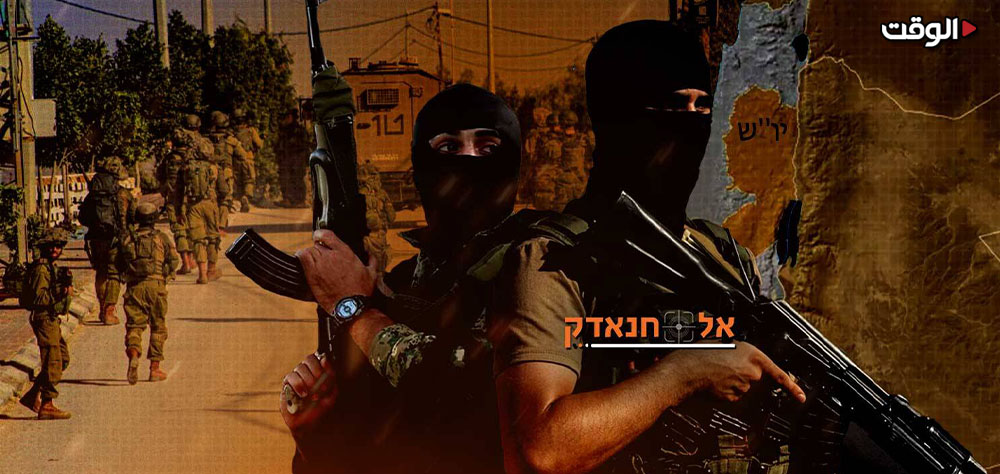Alwaght- On Monday, Israeli military launched new ground offensive under Operation Gideon's Chariots. The move was not ceremonial, rather, it soon turned to be a controversial topic on the Israeli media. Israeli experts describe the use of biblical symbols as a targeted move to use a propaganda instrument to justify military violence and advance political objectives of the far-right.
Symbolic bonds of religion and war in naming the military operations
In the Israeli army, there is a specialized unit for naming military operations that carefully selects names based on religious and historical backgrounds to create a symbolic identity and have a psychological impact on Jews both inside and outside Israel.
According to the Torah, Gideon, son of Joash, was a mythical figure from the tribe of Manasseh who lived in the region of Ofra, west of the Jordan River. After being chosen by the "Angel of God," he became the leader of the Israelites when they were hiding in caves out of fear of the Midianites. Despite having only 300 soldiers, Gideon defeated the Midianites, who were skilled in camels with camels, by employing innovative tactics and using war chariots.
Gideon verbally means "warrior" in ancient Hebrew, and in Judaism, he is remembered as a symbol of the promised Messiah who will bring about the reconstruction of the "Third Temple." But today, the name is associated with a military operation that many consider humanitarian and political catastrophes, leading to humorous comparisons between the “historical Gideon” and the “modern Gideon.”
The use of the name Gideon in Israel's military operations has a past. In 1948, Israel also used the name in “Operation Gideon” to occupy the village of Besan and expel its Palestinian inhabitants. In the context of this naming discourse, the Palestinians are likened to the Midianites – the historical enemies of the Israelites – in order to pave the way for the construction of the Third Temple in Al-Quds (Jerusalem), an action that Israelis see as necessary for the survival of the Jews in the “Promised Land.”
Israel used biblical names for military operations in the past. Here are some of them:
Strong Cliff name for the 51-day war on Hamas in 2014. This name is taken from the Book of Daniel, which symbolizes divine strength and power.
Operation Storm was the title name by the Israelis for a 2002 terrorist operation to assassinate Sheikh Ahmed Yassin, the leader and founder of the Hamas movement. This name refers to the story of the divine storm in the Book of Psalms as a means of punishing Israel’s enemies.
Also, the choice of the name King David for the operation to attack Gaza in 2023, which was carried out with the aim of freeing prisoners and completely destroying the resistance factions in this Palestinian enclave, refers to the story of the conquest of Al-Quds by the Prophet David, which is considered one of the great successes in the mythical history of the Jewish state. This name practically reveals the regime’s broad and grandiose goals for entering a large-scale war with the aim of changing the equations of Palestine and completely occupying Gaza.
Political controversy around this naming
The naming of the new round of military operation against Gaza was hit by a media controversy because the regime's current Foreign Minister Gideon Sa'ar shares the same name with this biblical figure.
Given this similarity, opponents consider this naming to be ironic, because Gideon was a symbol of liberation, but Sa'ar, as a right-wing politician, is accused of serving the political interests of Benjamin Netanyahu. Contrary to the general expectations of Israelis, who have been holding intensive and continuous demonstrations in recent months demanding an agreement with Hamas and the rapid release of the remaining prisoners, Netanyahu's cabinet prefers its own survival to the lives of the prisoners.
Amidst the mocking and critical reactions to this naming, the publication of cartoons on social networks has been trending, showing Sa'ar riding a children's bicycle or steering a baby carriage instead of sitting on a war chariot (as biblical story tells).
Recurring pattern in the namings
Israel pursues three strategic goals behind picking biblical names for its military operations. First, sanctifying military actions through linking them to religious narratives that give them a divine face. Second, linkening the Palestinians to their historical enemies of the Israelites like Amaleks and Midianites to justify their violence against the Palestinians by creating a picture of the "old threat." Third, persuading the Jewish public opinion that these wars are a sequel to the biblical miracles and part of the divine fate of the Jewish people.
This naming pattern not only legitimizes military operations in the eyes of Jews in the occupied territories—especially Jewish expatriates, whose media and financial support Israel relies on—but also appeals to the large population of evangelicals, who view the Jewish presence in the occupied Palestinian territories as a prelude to the 'Second Coming.' Additionally, by distorting historical and religious narratives, it seeks to justify these actions as divinely ordained, thereby paving the way for the continued occupation of Palestine and suppression of Palestinians.
Therefore, it should be maintained that naming the new operation "Gideon's Chariots" is not just a propaganda tactic, but also part of a broader Israeli strategy for a permanent change to Gaza situation that includes full destruction of the coastal enclave, massacre of people, and their relocation from their mother land. By drawing bonds between war and religious stories, these namings try to the Jewish public opinion the violence against Palestinians.



























